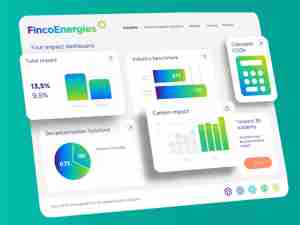BrillDog, the only supply chain technology built for small-to-medium-sized businesses (SMB), discusses why shippers need to perform a total cost of ownership (TCO) analysis of a transportation management system (TMS) to optimize the investment. Understanding the TCO helps shippers accurately plan and budget for the costs associated with implementing and operating a TMS. It provides visibility into the various cost components, allowing businesses to allocate resources effectively and make informed financial decisions.
“Knowing the long-term value and return on investment (ROI) of a TMS helps shippers make more informed decisions on whether a TMS solution aligns well with their budget and requirements,” says Sam Polakoff, Founder and CEO of BrillDog. “For example, SMBs need a TMS to optimize transportation processes, control costs, and improve customer service levels but cannot afford a full-blown, enterprise-level TMS. We introduced our freemium model, FreeDog, to help level the playing field for small to medium-sized shippers."
Knowing the Total Cost of Ownership (TCO) of a Transportation Management System (TMS) allows shippers to compare costs better and evaluate vendors. By performing analysis and evaluating the TCO, businesses can assess the long-term value and return on investment (ROI) of each option and make an informed decision regarding which TMS solution best aligns with their budget and requirements.
What to include in the TCO Analysis:
The TCO of a TMS includes both the initial costs of implementing the system and the ongoing expenses associated with its operation and maintenance. Here is what you need to include in a TCO Analysis:
• Initial Implementation Costs include expenses associated with the initial setup and deployment of the TMS, such as software licensing fees, hardware infrastructure costs (if applicable), customization and configuration charges, data migration expenses, and implementation services provided by the vendor or third-party consultants.
• Software Licensing and Subscription Fees can vary based on the number of users, modules or features included, and the contract duration.
• Integrating the TMS with other systems and technologies, such as ERP, warehouse management systems, or electronic data interchange (EDI) systems, may incur additional costs from development efforts, middleware or integration platforms, and data mapping activities.
• Training and Support can include instructor-led sessions, online training modules, or hiring consultants to facilitate the training process. Ongoing technical support and maintenance fees are also part of the TCO, which covers assistance with troubleshooting, software updates, bug fixes, and general system maintenance.
• Infrastructure Costs – These costs depend on whether the TMS is an on-premises solution that requires hardware investments and IT resources or a cloud-based solution that only involves subscription fees for using the cloud infrastructure and services.
• Customization Efforts will cost extra if shippers want to go beyond the out-of-the-box capabilities of the TMS.
• Upgrades and Enhancements can involve costs for software licenses, implementation services, and potential data migration efforts.
The BrillDog TMS is a cloud-based platform that automates and optimizes inbound and outbound freight across LTL modes nationwide, with additional modes and features coming soon. Shippers can use FreeDog from BrillDog (the free version) to compare carrier rates, get rate quotes, create a bill of lading, track shipments, file damage/loss claims, and generate basic reports.
_-_28de80_-_bd7f578f3266b6832da075cb662495a52b0767f9_yes.jpg)








